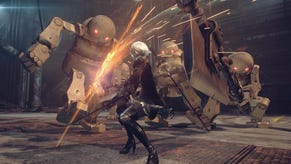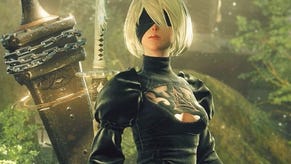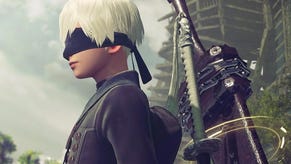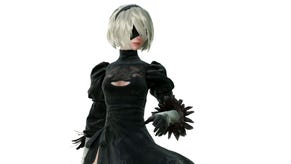Nier
And yet so far.
Experience is handled invisibly, with merely a brief notification when Nier has increased a level, but it's hard to effectively gauge whether you're ship-shape for the next part of the quest. Defeated enemies sometimes yield note of an unlocked tutorial; while some of these are merely helpful info, incredibly, this is also how the game informs you that Nier has a new move or ability. You're then required to visit the relevant page on the menu screen if you want to know how to use it. The in-game map is similarly useless, failing to provide locations for quests other than the main story, with no notifications of where exits from each smaller area lead. Then again, I've never had the best sense of direction.
Yet for almost every glaring omission or downright baffling design choice, there's a good idea waiting in the wings. Fallen enemies sometimes cough up 'words', which essentially act as buffs for the game's weapons and magic. These fall into prefixes and suffixes, which can be combined to improve attacking or defensive powers, with added effects such as poison or paralysis or to increase the experience gained or the rate of item drops. And they effortlessly nab the 'crazy names for in-game objects' crown from Too Human: at one point, I was wielding a Pahi Otir Blade of Treachery and smashing enemies with my Gebi Lug Dark Hand.
That spell, among several less effective ones, comes courtesy of Grimoire Weiss, a talking, floating book who provides a sarcastic commentary on proceedings and completely steals the show. Any lapses into gaming cliché are effectively skewered by Weiss, and experienced voice actor Liam O'Brien - apparently channelling Alan Rickman here - is clearly enjoying himself. One minute, he's sneering at a boss ("Really? The mouth? Such an obvious weak point") and the next, he's sniping at Nier for sidetracking the main quest when taking on villagers' comparatively mundane requests.
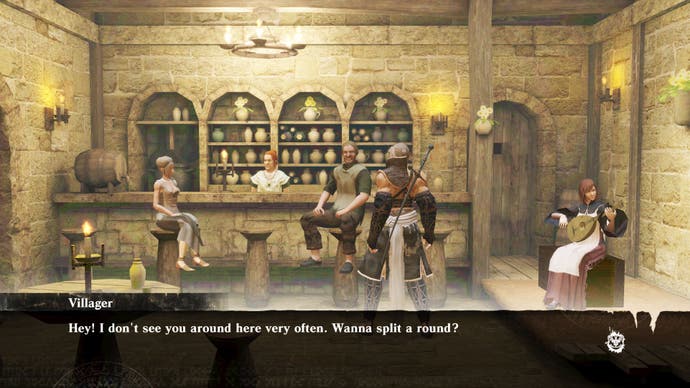
At times, you wonder if the scriptwriters aren't simply poking fun at the designers. Weiss criticises the unusual layout of a hidden desert city by claiming "they couldn't have made this more needlessly complicated if they tried," and even finds time to roll his eyes at the indecent attire of Nier's companion, profanity-spitting Lady Gaga-alike Kainé, "a boorish young woman who battles monsters in her undergarments". This begins to rub off on the other characters, too. Nier refers to himself as "just a big guy who kills things," and any time Weiss gets a little too loquacious or self-aggrandising, mighty hermaphrodite Kainé is always there with an amusingly curt put-down like "piss off, book".
It's an impressive localisation effort all round, particularly during a brief but exceptionally well-written sojourn into text adventure territory - no, really - with Weiss offering a fourth-wall-breaking admonishment of the unseen narrator. Incidental dialogue is mercifully brief but often amusing, and if some of the colloquialisms feel a little anachronistic (it's not often RPG barkeeps great the hero with a casual "'Sup"), the rest of the game is so determinedly bizarre that you simply accept them as yet another of its eccentricities.
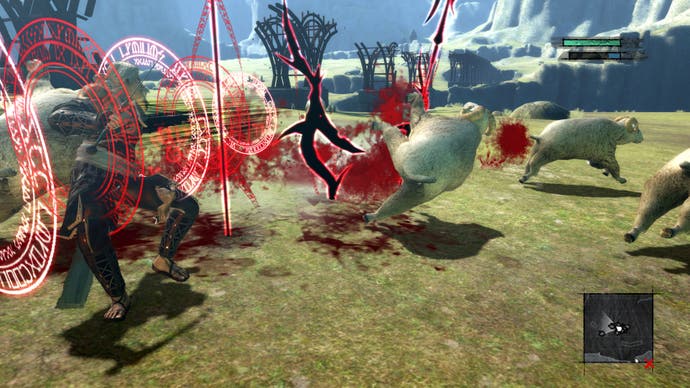
The music deserves special mention, with a number of memorable themes, ranging from a quite beautiful plucked acoustic number that plays in the lighthouse of a coastal town, to an industrial dungeon soundtrack of percussive metallic clanks. Despite some inventive art design, the visuals don't fare quite so well; the more open areas are sparse and uninteresting, while towns and villages are lacking the attention to detail that characterises the best RPGs. For a Square Enix title, that's a little surprising, but then it does have its publishing rather than its development hat on this time.
Nier often makes up for its lack of lustre with the sheer, inventive brio of its stand-out sequences, including two or three thrilling boss fights you'd be wise to avoid reading about, as well as some bold and original puzzle design in its dungeons. Its story, too, is worth sticking with, and while ultimately things go deeper than just a father's love for his sick daughter, Nier's single-minded quest to cure Yonah's disease is sometimes disarmingly sweet.
Nier is very difficult to dislike, even as you curse the quality control that lets the game oscillate wildly between the fiercely inventive and the utterly generic. Yet while it's hard not to admire a game that dementedly throws so much at the player in an attempt to make something stick, Nier's faults are too many and too severe to wholeheartedly recommend.



